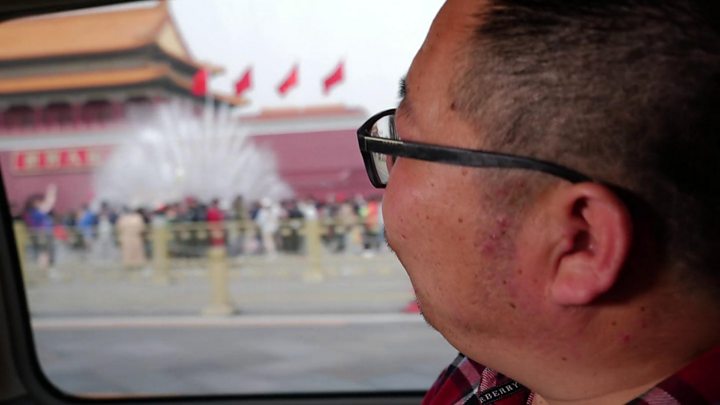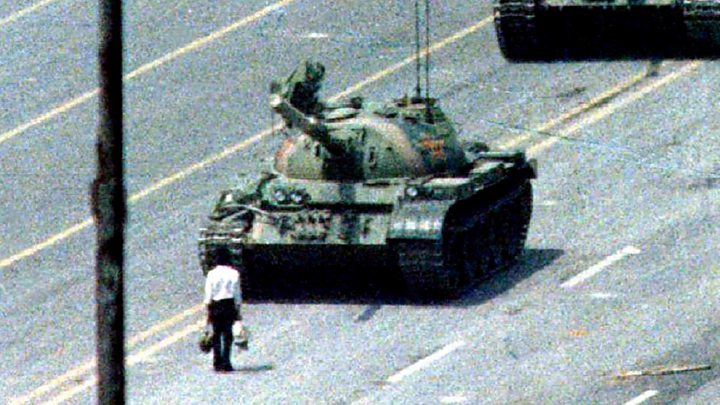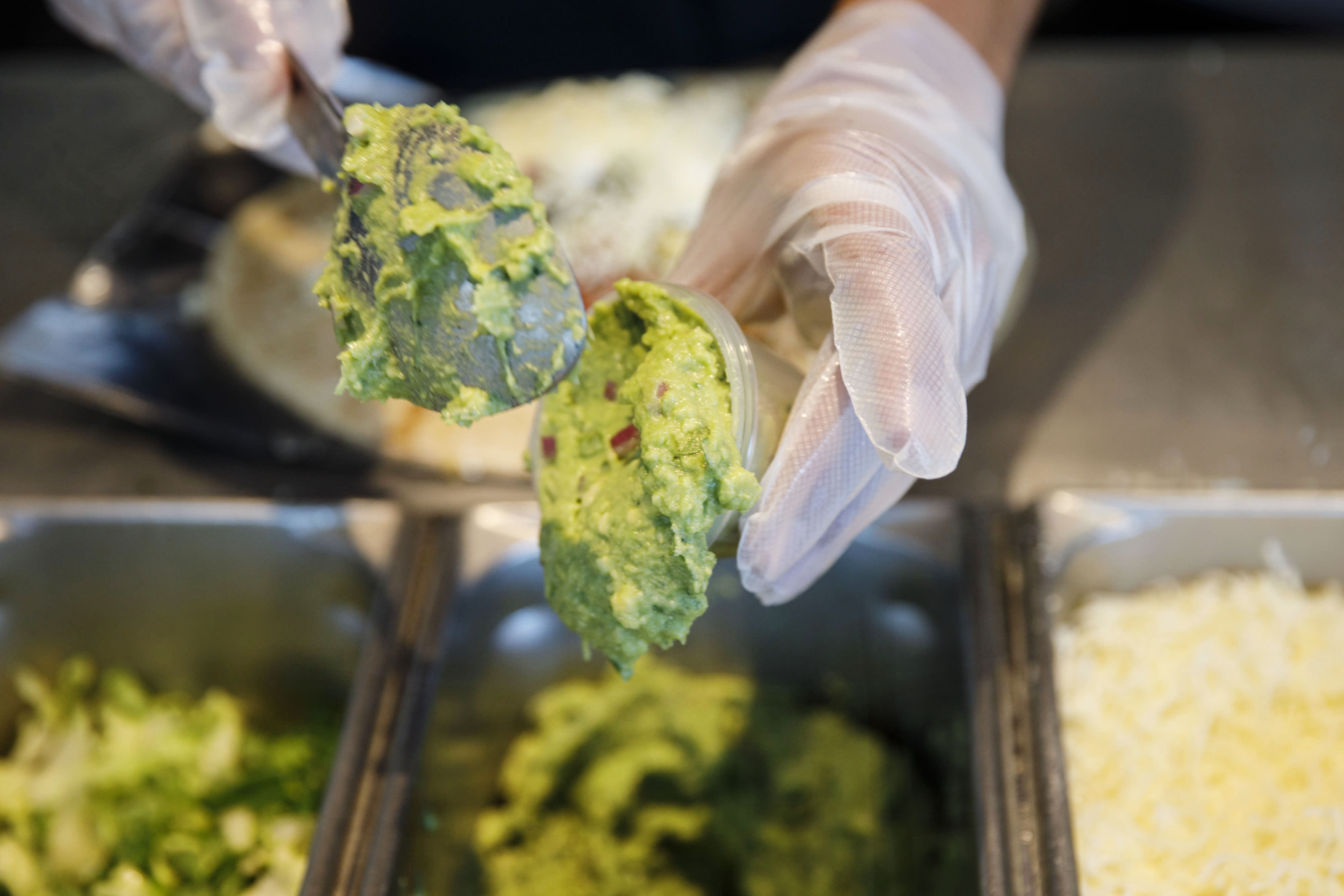The head of Sudan's Transitional Military Council (TMC) has said the council is scrapping all agreements with the main opposition coalition and will move ahead with elections to be held within nine months.
The announcement by Lieutenant General Abdel Fattah al-Burhan in the early hours of Tuesday came after security forces fired live ammunition to clear the main protest site outside the military headquarters in Khartoum, the focal point in the demonstrators' months-long struggle for civilian rule.
Protest groups said at least 35 people were killed and hundreds wounded in the raid by the security forces, calling it a "bloody massacre".
"The military council decided to stop negotiating with the Alliance for Freedom and Change [group representing protesters in negotiations] and cancel what had been agreed on and to hold general elections within nine months," al-Burhan said in a televised statement.
Al-Burhan said the TMC would now move to set up an interim government to prepare for elections, which he added would be internationally supervised.
'Either them or us'
Monday was the worst day of violence since the military overthrow of long-time autocrat Omar al-Bashir on April 11 after months of mass protests against his three-decade rule.
But protesters insisted that al-Bashir's removal from power was not enough. Tens of thousands remained in place in Khartoum and other camps around the country, pushing the generals who replaced al-Bashir to swiftly hand over power to a civilian-led administration.
The bloody assault and dispersal of the Khartoum sit-in now risk escalating violence even further, making a more intense face-off between the military and protesters more likely.
Pro-democracy protesters vowed to keep up their campaign, suspending talks and calling for "total civil disobedience" to "paralyse public life" across the country.
"This is a critical point in our revolution. The military council has chosen escalation and confrontation," said Mohamed Yousef al-Mustafa, a spokesman for the Sudanese Professionals' Association (SPA), which has spearheaded the months-long protests.
"Those are criminals who should have been treated like al-Bashir," he said. "Now the situation is either them or us, there is no other way."
For his part, al-Burhan said military leaders would investigate Monday's violence, but claimed that the coalition representing the demonstrators shared responsibility for the bloodshed.
In his televised statement, the TMC head accused the alliance representing the protesters of "extending the negotiations and seeking to exclude other political and security forces" from being in a transitional government.
The TMC and protest leaders had made progress during talks in May over an interim cabinet and legislative body, but they split over the make-up and leadership of a sovereign council that was being discussed to govern Sudan during a three-year transition.
On Friday, the TMC had called the sit-in "a danger" to the country's national security and warned that action would be taken against what it said were "unruly elements".
On the same day, the military had also ordered the office of the Al Jazeera Media Network in Khartoum to be shut down, without giving a reason for the decision, while also withdrawing the work permits for the correspondents and staff of the Qatar-based news organisation.
'Shooting at everyone randomly'
Activists said the assault in the early hours of Monday appeared to be a coordinated move, with other forces attacking similar sit-ins in Khartoum's sister city of Omdurman and the eastern city of Gadarif.
Protesters accuse General Mohamed Hamdan Dagalo, the head of Sudan's notorious Rapid Support Forces and deputy head of the TMC, of ordering the violent crackdown. Twenty-four hours before the security forces' raid, Dagalo, who goes by the nickname Hemeti, was filmed making a veiled threat to protesters.
"We must firmly stand up to the ongoing chaos and build a true state," he said. "As for the civil state the protesters are demanding, to be truly a civil rule with no individuals above it, it must be built on a rule of law. It must be ruled by law and there is no one above the law."
The attack came on the day before the Eid holiday that ends Ramadan, the holy month when Muslims fast during daylight hours. Large numbers of troops from the military, police and Rapid Support Forces moved in on the gathering after overnight rains, activists said.
Mohammed Elmunir, a protester in Khartoum, said security forces blocked the exits of the sit-in site before opening fire on protesters.
"They were shooting at everyone randomly and people were running for their lives. They blocked all roads and most tents at the sit-in have been set on fire," Elmunir told Al Jazeera.
In online videos, protesters were seen running and ducking as barrages of gunfire echoed. Activists said hundreds were arrested, with photos posted online showing dozens of men and women lined up on the pavement, sitting or lying face down, under guard by troops.
Demonstrators stood behind low barricades of bricks and dug-up pavement, and some threw stones before being driven back by walls of blue-clad security forces carrying sticks. One video showed police swarming around a protester sprawled on the ground, beating him with sticks. In another video, residents opened their doors to shelter those who ran.
A doctors' committee linked to the protesters said the death toll had risen to at least 35 by early Tuesday with the killing of five people in the city's Bahri district. The committee said it was difficult to count deaths in areas outside the military headquarters in Khartoum, adding that hundreds of people were wounded, many by gunfire.
Medical staff and the injured were trapped in clinics as troops overran the area.
"Wounded people are lying on the ground in the reception area as there are not enough beds," said Azza al-Kamel, a doctor at Royal Care hospital.
International condemnation
The attack against the protesters came days after al-Burhan met with his top foreign allies, including Egyptian President Abdel Fattah el-Sisi and Abu Dhabi Crown Prince Sheikh Mohammed bin Zayed Al Nahyan, who have both been strong supporters of the TMC and deeply oppose movements such as those that swept the region in the 2011 Arab Spring uprisings.
Many analysts said they believed the military rulers were being influenced by powers outside Sudan.
"The latest escalation, and what is already a precarious situation, came after the head of the military council and the deputy head ... visited Saudi Arabia," Awol Allo, a senior lecturer in law at Keele University, told Al Jazeera. "Since then, there is a significant escalation ... against the protesters."
Meanwhile, United Nations Secretary-General Antonio Guterres condemned the crackdown and called on authorities to allow an independent investigation, according to his spokesman.
"There was use of excessive force by the security forces on civilians," Stephane Dujarric said.
The UN Security Council is set to discuss Sudan after the United Kingdom and Germany requested a closed-door session, set for Tuesday afternoon.
UN human rights chief, Michelle Bachelet, expressed alarm at reports that live ammunition was used, including "next to, and even inside, medical facilities".
The embassies of the United States and the UK also expressed concern.
Amnesty International, a London-based rights group, called on the UN Security Council to consider imposing sanctions on TMC members.
The military "has completely destroyed the trust of the Sudanese people and crushed the people's hope for a new era of respect for human rights and respect for the right to protest without fear," said Sarah Jackson, Amnesty deputy regional director for East Africa.
Let's block ads! (Why?)
https://www.aljazeera.com/news/2019/06/bloody-attack-sudan-army-scraps-agreements-protesters-190604005733226.html
2019-06-04 06:50:00Z
52780308260750






